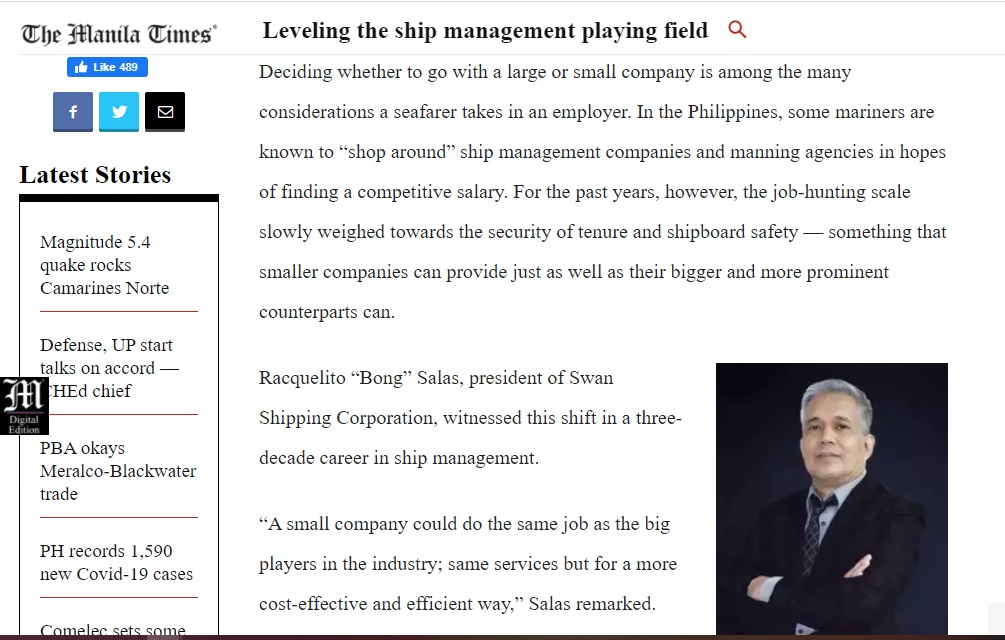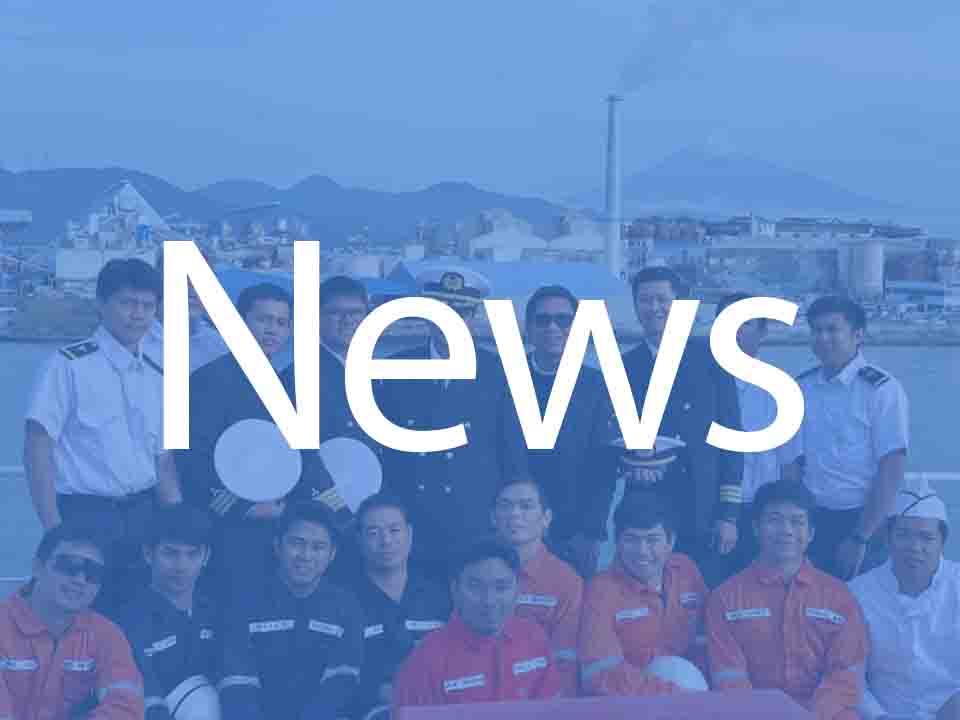
Leveling the ship management playing field
Deciding whether to go with a large or small company is among the many considerations a seafarer takes in an employer. In the Philippines, some mariners are known to “shop around” ship management companies and manning agencies in hopes of finding a competitive salary. For the past years, however, the job-hunting scale slowly weighed towards the security of tenure and shipboard safety — something that smaller companies can provide just as well as their bigger and more prominent counterparts can.
“A small company could do the same job as the big players in the industry; same services but for a more cost-effective and efficient way,” Salas remarked.Racquelito “Bong” Salas, president of Swan Shipping Corporation, witnessed this shift in a three-decade career in ship management.
The ship management veteran personally observed such feats in conversations with industry leaders, noting that the best practices and experiences of larger companies are similar to the smaller ones.
“What I enjoy most is meeting other people from the industry through forums and conferences. This is where I get to sit down and share experiences with the so-called ‘big boys’ of international shipping. Consequently, I’ve learned that the struggles are the same and I am proud that a small company such as ours could match theirs,” Salas said.
A mechanical engineer by profession, Salas is used to troubleshooting and improving things he could get his hands on. He is constantly able to hold the scale of seafarer employment and retention by gearing up for challenges and ensuring compliance with international standards.
“I am responsible for our ‘Goal Zero’ – to achieve zero accidents, no harm to our people, and zero oil spill at sea. To do this, our shore staff and seafarers are trained to be ‘switched on’ in terms of regulatory developments and implementation,” Salas added.
The Swan Shipping president disclosed that among the many difficulties in ship management is implementing and keeping all personnel, both onshore and at sea, abreast of the constantly changing regulations imposed by the Flag States and the maritime industry.
“Shipping is a very dynamic industry where rules and regulations can change overnight. Regardless of our size as a company, however, we safeguard the welfare of our crew, the environment, and our fleet at all times by staying on our Goal Zero path.”
Nothing is too difficult for Salas. Not even the relentless fluctuations in shipping trends and regulations. Such resilience is attributed to the privations he experienced as a child.
“I am the seventh of eight children. My father was a professional musician and my mother was a housewife. Our financial insufficiency taught me and my siblings the value of hard work and a sense of gratitude for whatever it is we have on our table, no matter how little it is,” Salas recalled. At a very young age, he took on responsibilities in the house so much so that maturity, accountability, and determination came to him before adulthood.
When he entered the ship management sector in 1988, he stayed on for good. His loyalty was evident in that there were only four companies he worked with for 33 years, one of which was in Papua New Guinea.
Behind the strong and somber character, however, is a man of music. The rigidity of shipping is washed off by the fluid lilting of melodies from vinyl records he kept as a young man.
“I used to play with a band. I can do the guitar, bass, and keyboard but what I love best is playing the drums,” he shared.
Salas is also tagged as the ‘bonding agent’ of his friends and family for his ability to reach out and unite people. “Before the pandemic, I’m almost always in-charge of organizing reunions. It can be difficult to get people together but it is something that I enjoy,” he concluded.
